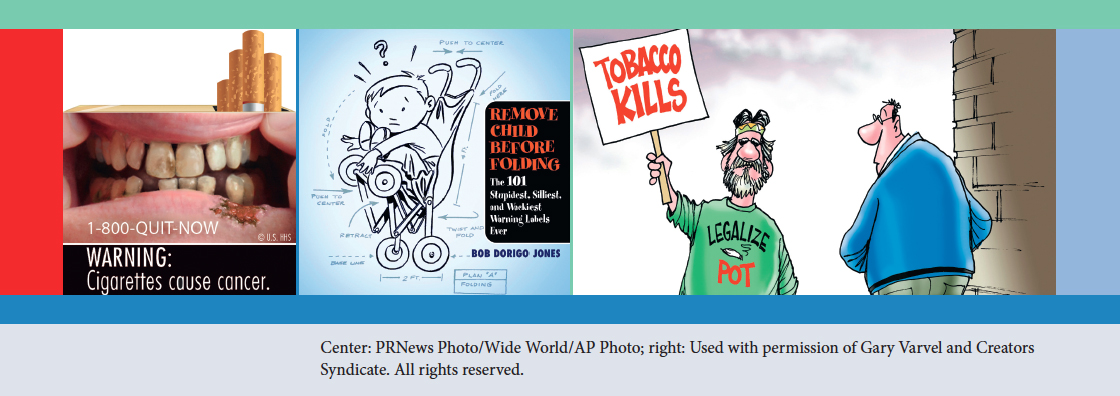Arguments Based on Emotion: Pathos
2
Arguments Based on Emotion: Pathos

Emotional appeals (appeals to pathos) are powerful tools for influencing what people think and believe. We all make decisions — even including the most important ones — based on our feelings. That’s what the Food and Drug Administration hoped to capitalize on when it introduced nine tough warning labels for cigarettes, one of which you see above. One look at the stained, rotting teeth and the lip sore may arouse emotions of fear strong enough to convince people not to smoke.
In the second panel, Bob Dorigo Jones, an opponent of lawsuit abuse, takes concerns about product liability in a different direction, publishing a book entitled Remove Child before Folding: The 101 Stupidest, Silliest, and Wackiest Warning Labels Ever to make us laugh and thereby, perhaps, to wonder why common sense seems in such short supply. In the third panel, editorial cartoonist for the Indianapolis Star Gary Varvel uses the anti-smoking meme to point out a potent irony in burgeoning campaigns to legalize marijuana.
29
The arguments packed into these three images all appeal to emotion, and research has shown us that we often make decisions based on just such appeals. So when you hear that formal or academic arguments should rely solely on facts to convince us, remember that facts alone often won’t carry the day, even for a worthy cause. The largely successful case made this decade for same-sex marriage provides a notable example of a movement that persuaded people equally by virtue of the reasonableness and the passion of its claims. Like many political and social debates, though, the issue provoked powerful emotions on every side — feelings that sometimes led to extreme words and tactics.
Of course, we don’t have to look hard for arguments fueled with emotions such as hatred, envy, and greed, or for campaigns intended to drive wedges between economic or social groups, making them fearful or resentful. For that reason alone, writers should not use emotional appeals rashly or casually. (For more about emotional fallacies, see “Fallacies of Emotional Argument” in Chapter 5, “Fallacies of Argument”.)